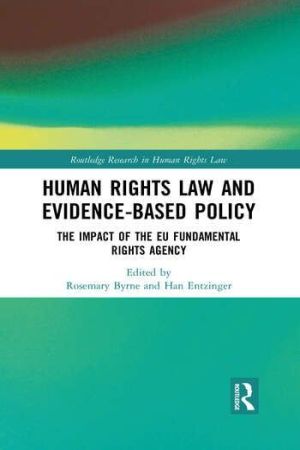
The EU Fundamental Rights Agency (FRA) was established to provide evidence-based policy advice to EU institutions and Member States. By blending social science research with traditional normative work, it aims to influence human rights policy processes through new ways of framing empirical realities.
The contributors to this volume critically examine the experience of the Agency in its first decade, exploring FRA’s historical, political and legal foundations and its evolving record across major strands of EU fundamental rights. Central themes arising from these chapters include consideration of how the Agency manages the tension between a mandate to advise and the more traditional approach of human rights bodies to ‘monitor’, and how its research impacts the delicate equilibrium between these two contesting roles? FRA's experience as the first ‘embedded’ human rights agency is also highlighted, suggesting a role for alternative and less oppositional orientations for human rights research.
While authors observe the benefits of the technocratic approach to human rights research that is a hallmark of FRA’s evidence-based policy advice, they also note its constraints. FRA’s policy work requires a continued awareness of political realities in Brussels, Member States, and civil society. Consequently, the complex process of determining the Agency’s research agenda reflects the strategic priorities of key actors. This is an important factor in the Agency’s role in the EU human rights landscape. This pioneering position of the Agency should invite reflection on new forms of institutionalized human rights research for the future.